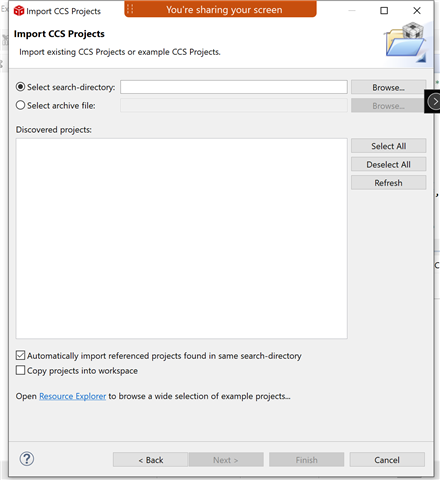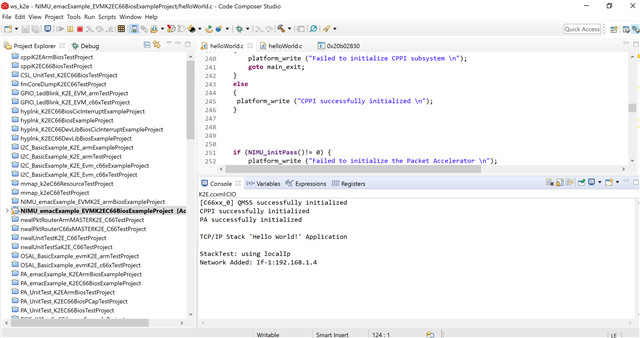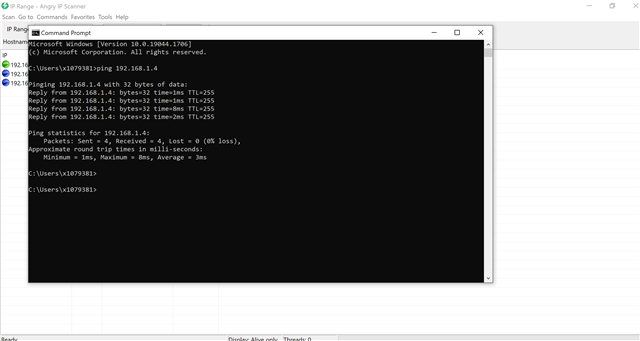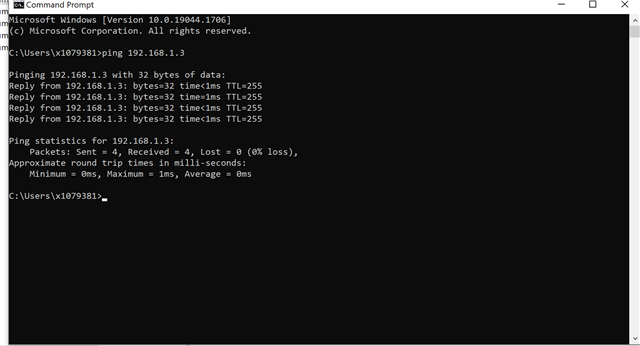Part Number: 66AK2E05
How to run NIMU EMAC client example from TI-RTOS SDK for K2E family processor?
This thread has been locked.
If you have a related question, please click the "Ask a related question" button in the top right corner. The newly created question will be automatically linked to this question.
Part Number: 66AK2E05
How to run NIMU EMAC client example from TI-RTOS SDK for K2E family processor?
To run the NIMU EMAC example for K2E devices make sure the pre-requisites are present.
Now Import the CCS project into CCS and go on

//---------------------------------------------------------------------------
// Local IP and gateway IP can be modified to our requirement
//
char *HostName = "tidsp";
char *LocalIPAddr = "192.168.1.4";
char *LocalIPMask = "255.255.255.0"; // Not used when using DHCP
char *GatewayIP = "192.168.1.1"; // Not used when using DHCP
char *DomainName = "demo.net"; // Not used when using DHCP
char *DNSServer = "0.0.0.0"; // Used when set to anything but zero
//
// Main Thread
//
int StackTest()
{
...
// If the IP address is specified, manually configure IP and Gateway
#if defined(_SCBP6618X_) || defined (DEVICE_C6678) || defined(_EVMTCI6614_) || defined(DEVICE_K2H) || defined(DEVICE_K2K) || defined(DEVICE_K2L) || defined(DEVICE_K2E)
/* SCBP6618x, EVMTCI6614, EVMK2H, EVMK2K always uses DHCP */
if (1) // set it as 1 for Manual IP configuration
{
//Manual IP configuration code
}
else
{
//DHCP IP configuration code
}
...
}



//
// Main Thread
//
int StackTest()
{
...
// If the IP address is specified, manually configure IP and Gateway
#if defined(_SCBP6618X_) || defined (DEVICE_C6678) || defined(_EVMTCI6614_) || defined(DEVICE_K2H) || defined(DEVICE_K2K) || defined(DEVICE_K2L) || defined(DEVICE_K2E)
/* SCBP6618x, EVMTCI6614, EVMK2H, EVMK2K always uses DHCP */
if (0) // set it as 0 for DHCP IP configuration
{
//Manual IP configuration code
}
else
{
//DHCP IP configuration code
}
...
}



Thanks & Regards,
Rajarajan U